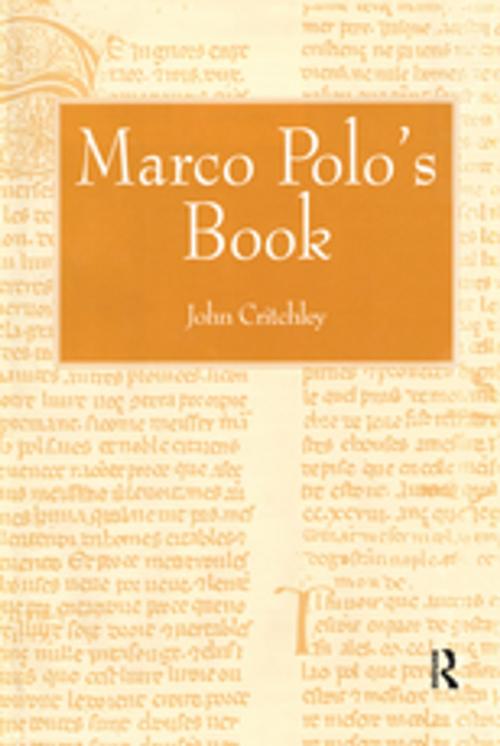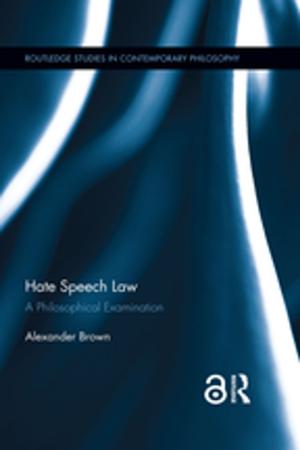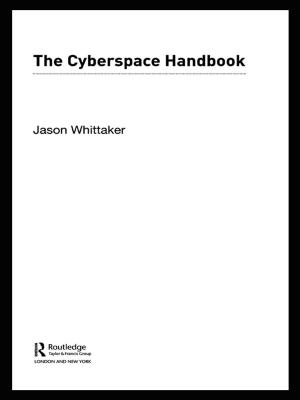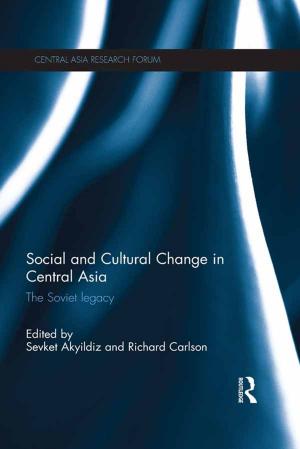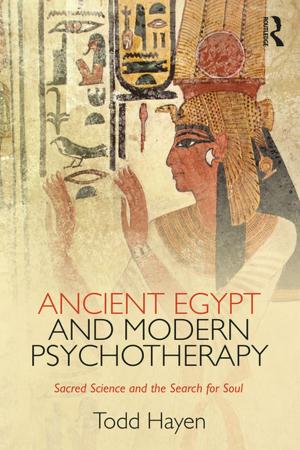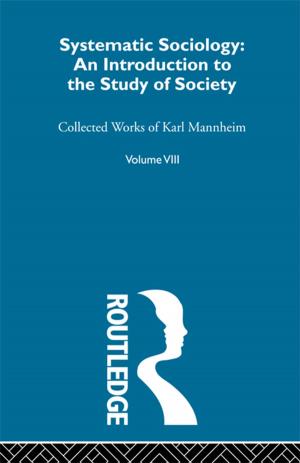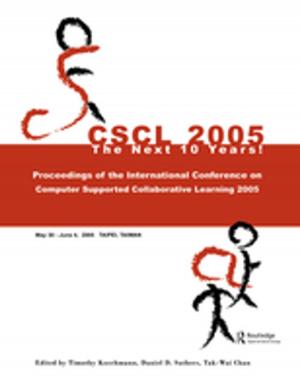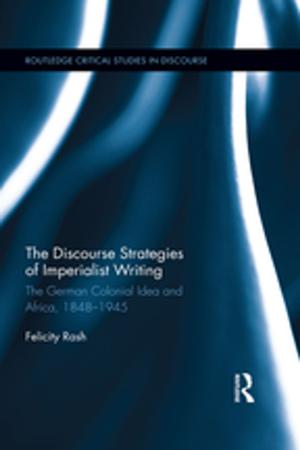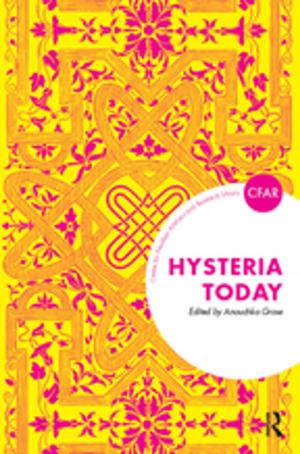| Author: | John Critchley | ISBN: | 9781351919968 |
| Publisher: | Taylor and Francis | Publication: | July 5, 2017 |
| Imprint: | Routledge | Language: | English |
| Author: | John Critchley |
| ISBN: | 9781351919968 |
| Publisher: | Taylor and Francis |
| Publication: | July 5, 2017 |
| Imprint: | Routledge |
| Language: | English |
Marco Polo and his book may seem to have been well served by scholars, yet the majority have been concerned to write about his travels in Asia, what he did or did not see, and how useful he is as a source on the East. John Critchley’s subject, on the other hand, is the text of Polo’s book itself and the political and ideological context - the crusades, the Mongol missions, the French presence in Italy - in which it was put together by its author(s), and read by its audience. The homogeneity of the ’original’ Franco-Italian text and the accepted relationship between this text and the Latin recensions is tested by computer analysis. An examination of vocabulary and other textual features draws out the different attitudes and contributions of Polo himself and his various editors and translators. Critchley’s book will be of interest not only to those concerned with the history of later medieval Europe but also to specialists in medieval Asia, who will find it useful to know about the background and composition of so famous and frequently cited a work. On pourrait penser que Marco Polo et son livre ont été amplement débattus par les spécialistes en la matière, cependant la majorité a surtout écrit à propos de ses voyages en Asie, ce qu’il avait ou n’avait pas vu et sur son utilité en tant que source de références sur l’Orient. Le sujet traité par John Critchley par contre, est le texte même du livre de Polo, ainsi que le contexte politique et ideologique - les croisades, les missions mongoles, la présence française en Italie - dans lequel il a été composé par son ou ses auteurs et dans lequel ses lecteurs ont pu le lire. L’homogeneïté du texte franco-italien d’origine et le rapport accepté entre celui-ci et les révisions latines ont été analysés par ordinateur. Un examen du vocabulaire et d’autres caractéristiques littéraires fait transparaître les différences d’attitudes et de contributions entre Polo
Marco Polo and his book may seem to have been well served by scholars, yet the majority have been concerned to write about his travels in Asia, what he did or did not see, and how useful he is as a source on the East. John Critchley’s subject, on the other hand, is the text of Polo’s book itself and the political and ideological context - the crusades, the Mongol missions, the French presence in Italy - in which it was put together by its author(s), and read by its audience. The homogeneity of the ’original’ Franco-Italian text and the accepted relationship between this text and the Latin recensions is tested by computer analysis. An examination of vocabulary and other textual features draws out the different attitudes and contributions of Polo himself and his various editors and translators. Critchley’s book will be of interest not only to those concerned with the history of later medieval Europe but also to specialists in medieval Asia, who will find it useful to know about the background and composition of so famous and frequently cited a work. On pourrait penser que Marco Polo et son livre ont été amplement débattus par les spécialistes en la matière, cependant la majorité a surtout écrit à propos de ses voyages en Asie, ce qu’il avait ou n’avait pas vu et sur son utilité en tant que source de références sur l’Orient. Le sujet traité par John Critchley par contre, est le texte même du livre de Polo, ainsi que le contexte politique et ideologique - les croisades, les missions mongoles, la présence française en Italie - dans lequel il a été composé par son ou ses auteurs et dans lequel ses lecteurs ont pu le lire. L’homogeneïté du texte franco-italien d’origine et le rapport accepté entre celui-ci et les révisions latines ont été analysés par ordinateur. Un examen du vocabulaire et d’autres caractéristiques littéraires fait transparaître les différences d’attitudes et de contributions entre Polo
